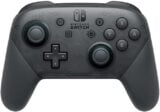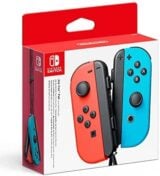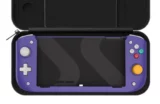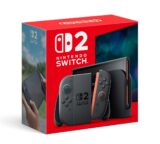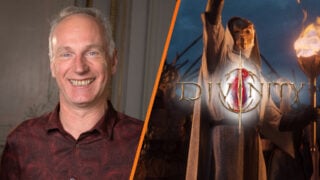Toshihiro Nagoshi interview: ‘I will not betray my fans’
The former Yakuza director talks life under NetEase, and how he’s approaching his next cinematic franchise

After 30 glittering years at Sega, Toshihiro Nagoshi was one of the most powerful people at the company.
As the creator of many of its most iconic franchises, including Super Monkey Ball and Like A Dragon, and having worked on many others including Shenmue and Virtua Fighter, Sega‘s chief creative officer seemingly had the world at his feet.
And then, in October 2021, he left.
Recently, VGC was the first Western media outlet to visit Nagoshi Studio, the creator’s new NetEase-backed company situated on the outskirts of Tokyo’s trendy Shibuya district.
A minimalist meeting room, decorated only with a framed picture of the company’s name in Japanese calligraphy, is all we get to see of the developer’s headquarters. But we get the impression that, behind its walls, one of the Yakuza director’s typically cinematic game experiences is taking shape.
Little is currently known about Nagoshi Studio’s debut game, but its head honcho stressed that it won’t stray too far from the formula that made the Yakuza games such a success: drama, violence and humour.
“Obviously, we’re not going to create something exactly the same, but I do understand there are expectations from people based more on me as a creator and my personality, so people want to see my tastes and my personality in my new games,” Nagoshi told VGC via a translator.
“Obviously, I will not betray my fans in that sense – I will create something with my personality and make a dramatic game, stuff like that – and my taste and personality will be reflected in the game. I can’t tell you exactly what genre it’ll be or what the game is going to be like, but I will not betray my fans.”

As one of the industry’s most influential creators, Nagoshi would likely have had a line of suitors willing to back his startup studio. However, he tells us that NetEase’s pitch won him over due to its desire to take strides in the console action game genre he’s known for.
“The general environment [in this country] means it’s hard to try new things in Japan, but NetEase is very ambitious and wants to expand its business by succeeding worldwide and including the console game category, which aligns with our ambition,” Nagoshi said.
“So when we started our conversations, we aligned our goals and the destination we were aiming towards. We were pretty much aligned in the first place, and later on, when we actually had meetings with each other, we just made sure we were heading towards this goal we had set before.”
Read on for our full interview with Nagoshi, which covers his relationship with NetEase, progress on his next project, F-Zero GX’s anniversary and more.
Covid-19 has previously prevented you from visiting NetEase in China. Have you visited yet, and how has the experience been if so?
We have online and telephone calls, but we haven’t actually visited China.
We don’t have any concrete plans [to visit] at the moment because our work is going very smoothly. We don’t have any difficulty that would mean we would have to go and visit them in person, so right now we can just talk online.
The type of games NetEase has worked on in the past – mainly online and mobile titles – seem to complement your own experiences making big, cinematic single-player games that appeal to a global audience. What experience have you gained from working with them over the past 18 months?
It’s true that the games we create and the genres we favour are quite different, but some of the skills and technologies behind these games are alike . So despite the differences in genre, we do have frequent high-level exchanges and collaborations in terms of resources, technology and even people. We do keep these ties and have been achieving some results through this collaboration, so the genre difference isn’t a problem in this case.
Is it the case, then, that NetEase has gained as much experience working with you as vice-versa?
Yes, I think it’s more like two-way traffic, where we learn from each other about the same amount. From NetEase’s side, they don’t have that much console game development experience compared to us, so they would learn from us when it comes to making console games.
For us, we don’t have much online game development experience, and NetEase especially has expertise when it comes to making online games at a faster speed and managing their workflow well, so this is an aspect of work where we’ve learned a lot from them.
You haven’t held many press interviews since Nagoshi Studio opened last year. Has anything surprised you in the time since? This is obviously a new adventure for you, establishing a new studio and working for a different parent company.
The general environment means it’s hard to try new things in Japan, but NetEase is very ambitious and wants to expand its business by succeeding worldwide and including the console game category, which aligns with our ambition.
So when we started our conversations, we aligned our goals and the destination we were aiming towards. So we were pretty much aligned in the first place, and later on when we actually had meetings with each other, we just made sure we were heading towards this goal we had set before.
So there hasn’t necessarily been anything that’s surprising. We both just thought about our destination in the first place and are just heading in that direction.
We notice the design of your office is very traditional compared to other studios which are often filled with posters and memorabilia. What can you tell us about the thought process that went into designing your work environment, and did you put any of your personality into that?
I did not want to make the office design too intricate. We have a lot of members from different backgrounds who’d been working on different game titles, so what I wanted to do was create a place that was as simple and blank as possible, where newcomers can adapt to the environment right away, rather than deciding on a theme or concept for the office.
You’ve talked in the past a lot about the importance of communication within the studio – it’s even built into your logo – so if I were to walk onto your development floor, how does the design of the office reflect that?
I did not want to elaborate too much on the layout , but I can talk about how we thought a lot about our ways of communication and our workflow. We’re trying to create a communication workflow that is focused on game modules rather than each section. For example, instead of saying, ‘all the game designers should have this meeting, all the programmers should have that meeting’, we have a different way of communicating.
Regardless of job title, if people are working on the same part of the game, these people will gather together and have a call. So instead of the design team, art team, programmers, it’s more like maybe one designer, one art, one programmer, people working on the same module of the game, coming together and having a conversation.
We feel this way of communication is more effective than the usual one.
“The general environment means it’s hard to try new things in Japan, but NetEase is very ambitious and wants to expand its business by succeeding worldwide and including the console game category, which aligns with our ambition.”
Does this way of working make it even more important that producers are keeping track of what everyone is working on, so each department knows what’s happening in these conversations?
This is correct. The producers at our studio don’t just manage the human resources and financial resources, they have to understand the technologies, like Unreal Engine, for example. They have to understand the direction the game development is taking, what kind of game it is, and when the project isn’t going well and things get stuck, they have to think of a solution. So they have to have a better grasp of the game project and technologies, which makes it harder for them here.
Is that the same way you worked before, meaning this is more of a continuation than a reinvention?
Maybe we could say this is a new way of doing things, but I would say more precisely that we just have this great resource of people who are coming from different backgrounds and have worked on different game titles, what we want to do is to mix all their expertise and combine it together. So we’re really just taking out the good things from their experiences with different game companies and the best ways they worked at those companies.
When you first spoke to the press at the start of last year, you said you had ten staff. What can you tell us about how your recruitment has progressed since then?
Right now, we have about 50 employees in the studio. We’re actually quite open about what companies previous employees have worked at and what titles they’ve worked on – if this information is disclosed, these people might get approached by headhunters.
For us though, we’re not worried about it and are actually quite open about it because we believe that people who are looking for jobs will check out the information on our employees, think this might be a nice place to work, and approach us to apply to work here.
Especially because our studio is brand new and hasn’t launched any new games yet, if people want to apply to join our studio, their standards and the bar we set will really be based on the people we have. So this information is valuable to applicants, and we believe this is the right way to do recruitment in this era.

Is this something that’s frustrated you in the past, in terms of crediting? Properly crediting developers in game credits has been a global issue since the 80s.
I think that credits should be cited correctly and include everyone. In the past many Japanese companies were against this due to the risk of headhunting. However, I think citing correctly is necessary.
I’ve been working in the games industry for more than 30 years, and this is becoming a thing of the past because even though the games industry’s market cap has been going up, some areas of the industry are still behind compared to other industries like motion pictures. I think right now, these practices are dying out and we have a better environment overall.
You’ve not shared much about your next game, but you’ve said your ambition is to create a title of high quality and large scale. How challenging is it to meet those goals with a comparatively small team, compared to the size of team that would be expected to make a game of that size these days?
It’s true that a 50-person team is kind of small for this scale of game, and we do have a plan to expand our team. I can’t tell you the concrete numbers, but we do have a plan to have more people join. However, this doesn’t mean we’re just mindlessly hiring new people: we actually care about the quality of these people and their skill sets.
Even with these new people joining the team, we’re still considered a small team compared to other studios. But NetEase does help us outsource aspects, so at our studio the members will mostly focus on the core essence of the game, and when it comes to mass production we can outsource part of the production to other offices.
18 months ago you said you wanted to show your title at the earliest opportunity. Are you getting closer to the point where you can finally talk about it in detail?
I think we’re still going to need some time, and I can’t give you a concrete date for when that’ll be. However, it doesn’t change our goal to announce the game as soon as possible. We’re definitely trying our best to do so.
“It’s true that a 50-person team is kind of small for this scale of game, and we do have a plan to expand our team – I can’t tell you the concrete numbers, but we do have a plan to have more people join.”
Given the titles you’ve worked on in recent years, do you feel a pressure from fans of the Ryu Ga Gotoku / Yakuza series to produce something similar, or do you see the founding of Nagoshi Studio as a chance to clear the decks?
Obviously, we’re not going to create something exactly the same, but I do understand there are expectations from people based more on me as a creator and my personality, so people want to see my tastes and my personality in my new games.
Obviously, I will not betray my fans in that sense – I will create something with my personality and make a dramatic game, stuff like that, and my taste and personality will be reflected in the game. I can’t tell you exactly what genre it’ll be or what the game is going to be like, but I will not betray my fans.
Do you consider the Yakuza franchise to be a rival series to your new game?
[laughs] It’s really hard to say. I’m aware that people will definitely compare my game to the series, though.
I’d imagine you want to come out on top in that battle?
To be honest, this is a really good thing when it comes to comparing your new game to your old works, so I’ll just say I’ll try really hard to make the new game great.
You have at least confirmed it will be a cinematic game. At which point in development do you consider casting actors – is that something you think about right at the start, or do you focus on fleshing out the mechanics and structure before you think about casting actors?
At this point, we’re mostly focusing on trying to improve the core gameplay, so we are still at the early stage of selecting actors, but it’s definitely the plan because I want to create something cinematic, and I want to use the fame and popularity of actors to make my game known by more people.

You’ve also spoken about wanting to make games with a global appeal – would you consider hiring Western celebrities or actors to enhance that global appeal?
Yeah. If we’re going to use actors, there’s definitely a high possibility that we’d use someone outside of Japan.
July marked the 20th anniversary of F-Zero GX, a title you’ve said you’ve had a lot of affection for.
This is a very nostalgic game title for me, and that was when I learned how to create a high quality game to satisfy a fanbase. I learned a lot, and if there was a chance, I wouldn’t mind working on it again.
You’ve said that previously, but when you said it, you were at Sega. Does your new position at Nagoshi Studio theoretically make that more or less likely should that opportunity arise?
[laughs] This is more of a question for Nintendo!

